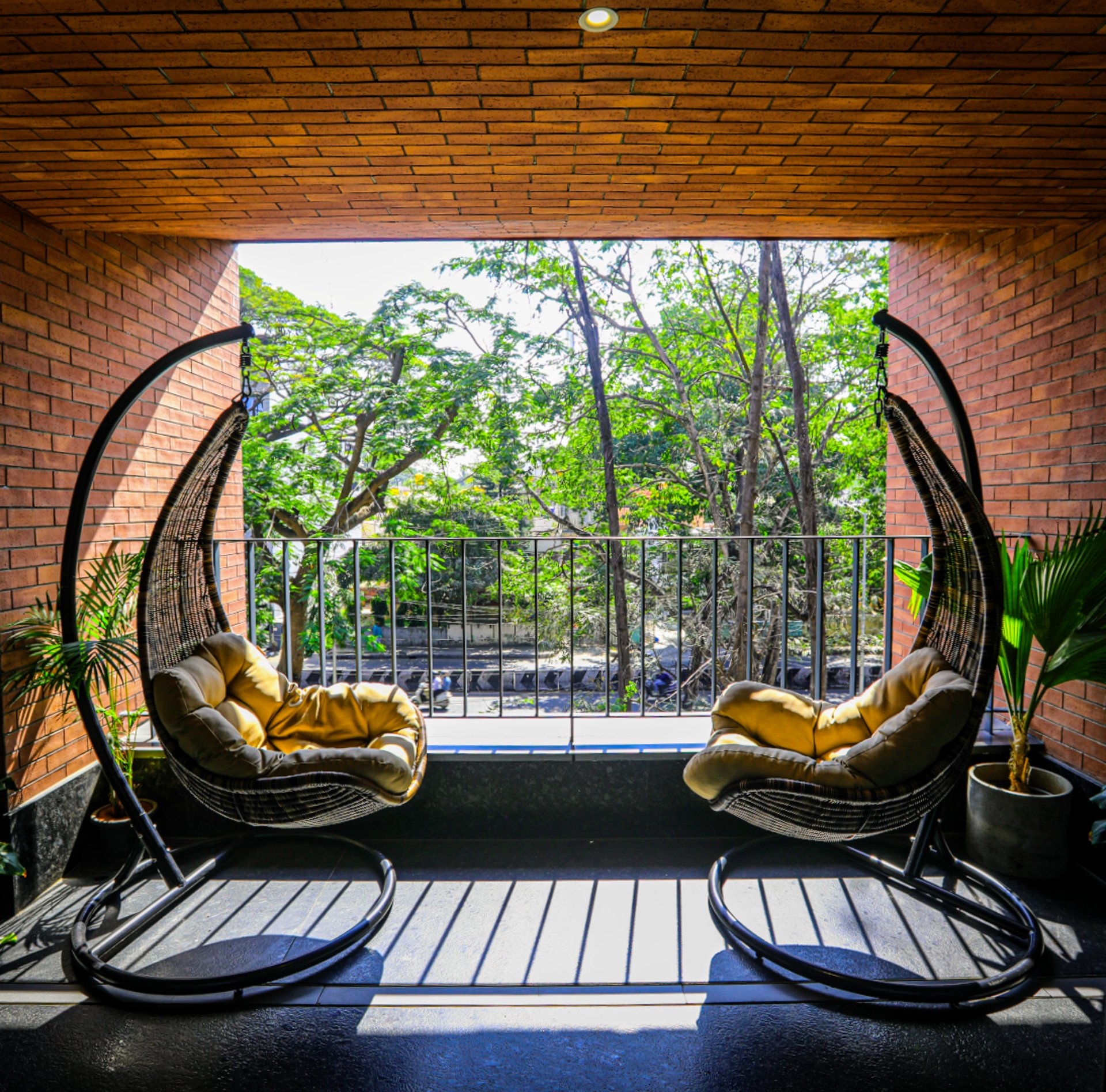Global Capacity Centers Drive India's Workspace Revolution
Read more about the major growth in coworking spaces, particularly in Bengaluru and Hyderabad, and how GCCs are shifting to flexible office solutions to accommodate global corporations' evolving needs. Citing insights from Knight Frank India and Colliers, it highlights the trend of expanding flex spaces and their importance in the future of commercial real estate, forecasting substantial growth by 2030.


Global Capability Centres and the Rise of Flexible Workspaces in India
Global Capability Centres (GCCs) are transforming the landscape of commercial real estate in India, particularly in the area of flexible office spaces. Currently, GCCs occupy approximately 202.6 million square feet of Grade A office space across major cities, with Bengaluru and Hyderabad accounting for nearly 75% of this space. This trend underscores the growing demand for flexible working environments that cater to the dynamic needs of multinational corporations.
.
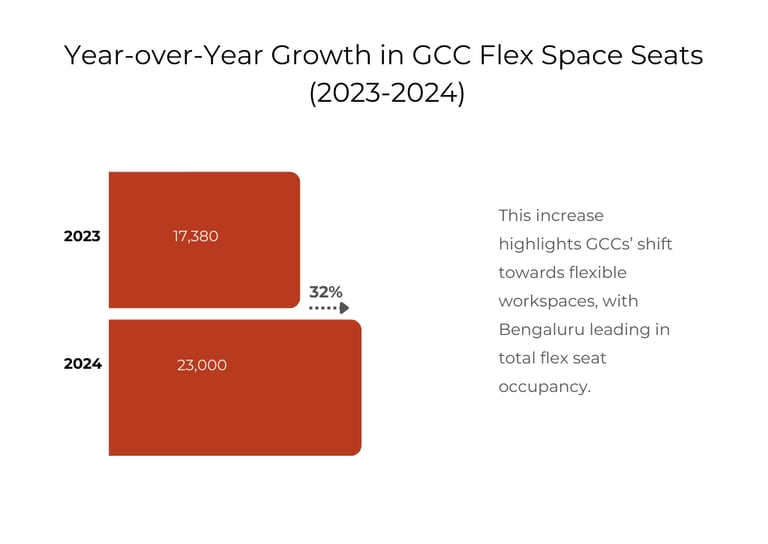

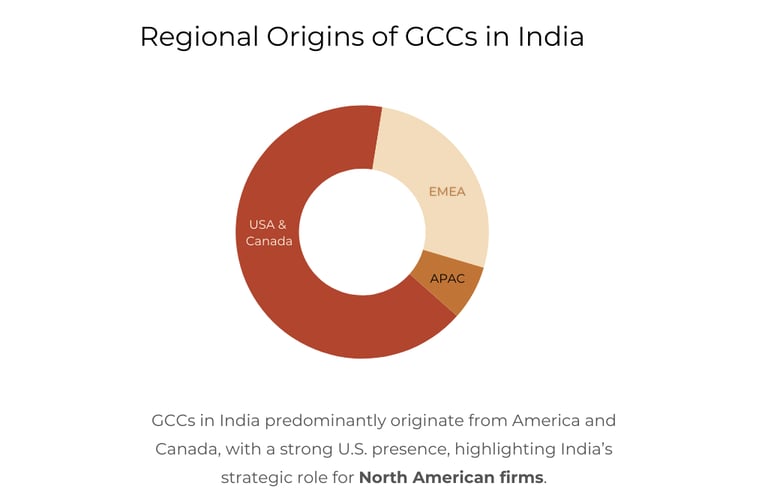

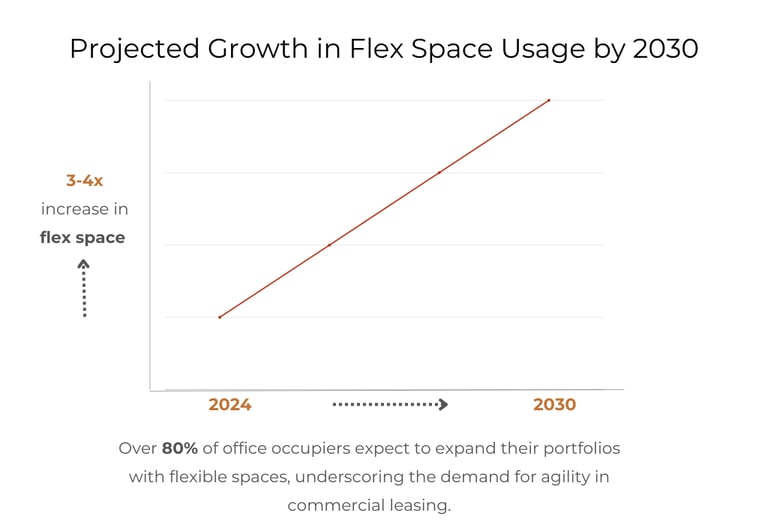

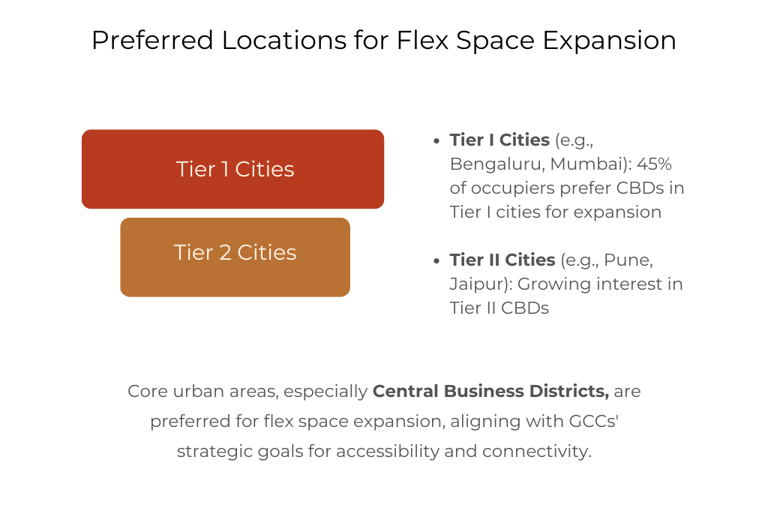

According to a report by Knight Frank India, titled GCC – Driving India’s Real Estate Growth Story, GCCs significantly increased their presence in coworking spaces in the first three quarters of 2024, securing around 23,000 seats
A recent survey by Colliers indicates that over 80% of office occupiers plan to expand their commercial portfolios through flexible spaces in the coming years. This expansion is anticipated to be most pronounced among multinational companies, with projections of a 3-4x increase in flex space usage by 2030.
The report also indicates a shift in GCC occupancy patterns. After experiencing a decline from 2021 to 2023, the year 2024 saw a resurgence in demand for flex spaces. This rebound can be attributed to slower economic growth in the U.S., prompting companies to turn to India for its cost efficiency and skilled workforce. Such trends reflect a broader corporate preference for flexible office solutions, essential for maintaining operational agility in a fast-evolving market.
Furthermore, the evolving nature of work is leading to a reimagining of flex spaces, which are now seen as central to core business operations. Approximately 45% of mid-sized companies and 35% of large corporations are leveraging flex spaces for essential functions. In addition, about 40% of technology sector occupiers have adopted flex spaces for their core operations, reflecting the sector's growing dependence on flexible work environments.
As companies increasingly commit to longer lease periods, with the average commitment for flex spaces expected to rise to nearly three years, the landscape of office occupancy continues to evolve. Core urban areas remain the preferred locations for portfolio expansion, with about 45% of surveyed occupiers favoring flex spaces in central business districts of tier I and II cities.
In summary, GCCs are playing a pivotal role in reshaping India's flexible workspace landscape, reflecting global trends and highlighting the ongoing growth potential for these centers as they adapt to the changing demands of the workforce.
For more insights, refer to the reports by Knight Frank India and Colliers.
Knight Frank India: GCC – Driving India’s Real Estate Growth Story

